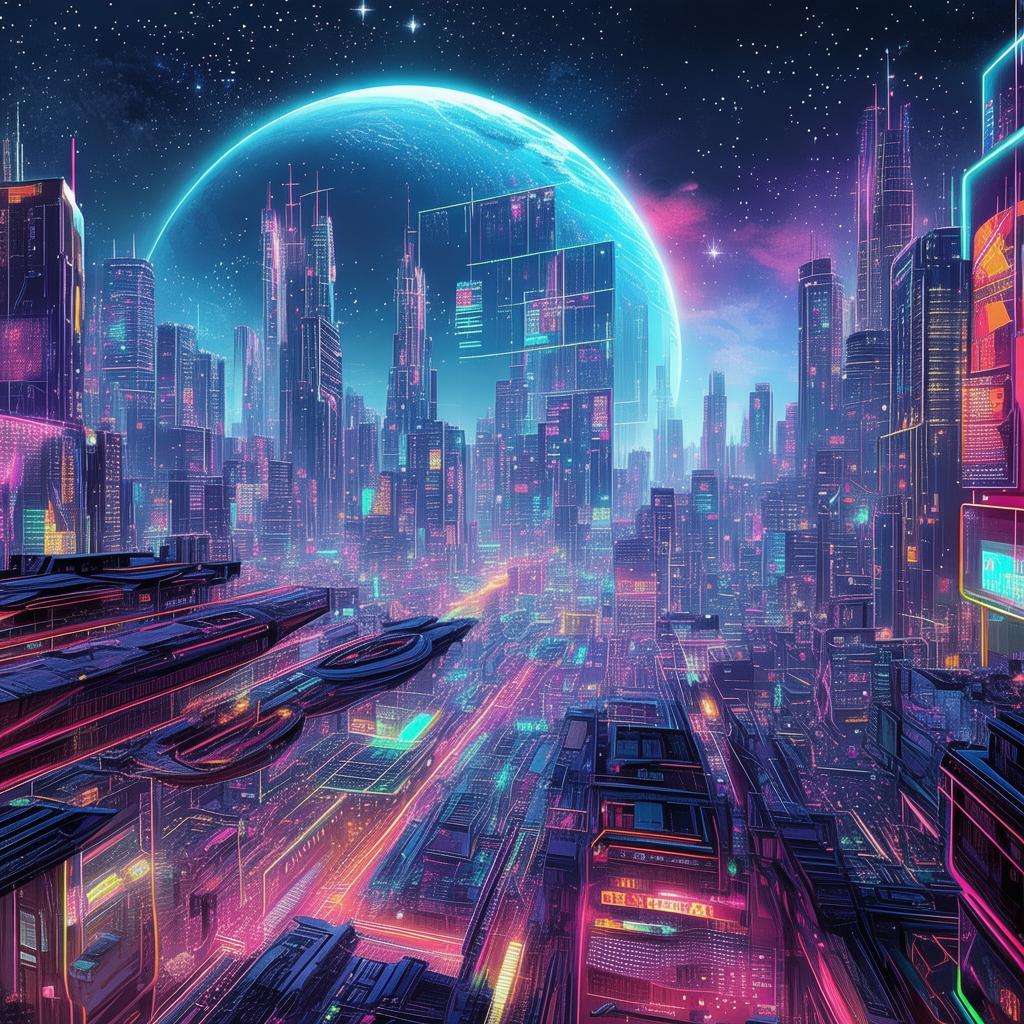Galactic Reckoning: The Starbound Dilemma
The hum of the spaceship's engines filled the vast chamber as Director Elara Voss stood before the holographic display, her eyes scanning the faces of the hopefuls. The Starbound Dilemma, her latest project, was not your average sci-fi epic. It was a narrative woven from the threads of survival, ethics, and the unspoken laws of the cosmos. The stakes were high, and the audience was not just the human race.
Elara's fingers danced across the controls, summoning one by one the candidates who had passed the initial screenings. Each one brought with them a piece of the puzzle, a fragment of the story she needed to tell. The first candidate, a human with a face etched with the lines of countless battles, stepped forward. "I've fought in wars, Director," he declared, his voice a baritone of experience. "I can bring that to the role."
"Good," Elara replied, her gaze steady. "But can you embody the hope that outlives the struggle?"
The next candidate was an alien, its skin iridescent and eyes glowing with a soft luminescence. "I have seen the stars," it communicated, its voice a melodic hum. "I understand the vastness and the loneliness of the universe."
"Then you understand the cost of survival," Elara pressed. "Can you convey that cost to the audience?"
The room buzzed with anticipation as the candidates were vetted, their stories and experiences laid bare. But as the final candidate approached, Elara's heart raced. This was the one who might hold the key to the film's success, the one who could bridge the gap between the human and alien worlds.
"Director," the candidate said, her voice a blend of warmth and determination, "I am Aria, a navigator who has charted the unknown. I've seen the beauty and the horror of the cosmos, and I've learned to navigate both."
Elara's eyes met Aria's. "And what have you learned about survival?"
"Survival is not just about the individual," Aria replied. "It's about the collective. It's about understanding the needs of the many, not just the few."
Elara's decision was not an easy one. The Starbound Dilemma was not just a film; it was a mission. It was a narrative that had to resonate with the audience, a story that would influence the very fabric of the galaxy. The cast was crucial, but so was the message.
As the crew prepared for the shoot, the challenges mounted. The alien language needed to be learned, the costumes crafted to reflect the diverse worlds of the story, and the special effects designed to bring the vastness of space to life. But it was the cast that became the focal point of the project.
Aria, with her navigational skills and understanding of collective survival, was given the role of the protagonist. She was the one who would guide the audience through the moral quagmires of the film. The human soldier, with his battle-hardened face, played the antagonist, a character driven by survival instincts and the desire to protect his own.
As the shooting commenced, the tension grew. The scenes were intense, the stakes were real, and the cast was pushing themselves to the limit. The alien navigator had to learn the nuances of human emotions, while the human soldier had to understand the alien perspective.
One particular scene was particularly difficult. Aria and the soldier had to confront the moral dilemma of choosing between their own survival and the survival of their respective species. The dialogue was written to provoke thought, to challenge the audience's preconceived notions of what it meant to be human or alien.
"Captain, we can't leave the others behind," Aria argued, her voice filled with the weight of her decision.

The soldier's eyes met hers, filled with the same conflict. "Aria, we have to think of the greater good. Our people need us."
The director stepped in, her voice a calm amidst the storm. "Remember, it's not just about the characters. It's about the audience. You're telling them something about themselves."
The scene played out, the actors giving it their all. The director's camera captured the raw emotion, the silent understanding, and the ultimate sacrifice. It was a scene that would resonate with the audience, a moment that would leave them questioning their own values.
As the shooting wrapped, Elara stood on the set, watching the crew pack up. The Starbound Dilemma was complete, and it was ready to be released into the world. The cast had given their all, their performances had pushed the boundaries of what was expected, and the message had been delivered.
The film was a success, not just as entertainment, but as a catalyst for change. It sparked discussions about survival, ethics, and the interconnectedness of all life in the universe. Elara stood back, watching the audience react, knowing that her film had done more than just entertain; it had inspired.
The Starbound Dilemma was not just a story; it was a reckoning, a moment of truth for the audience and for the director herself. It was a testament to the power of storytelling, to the ability of art to bridge divides and provoke thought. And in the end, it was a reminder that survival is not just about the individual; it's about the collective, about understanding the needs of the many, not just the few.
✨ Original Statement ✨
All articles published on this website (including but not limited to text, images, videos, and other content) are original or authorized for reposting and are protected by relevant laws. Without the explicit written permission of this website, no individual or organization may copy, modify, repost, or use the content for commercial purposes.
If you need to quote or cooperate, please contact this site for authorization. We reserve the right to pursue legal responsibility for any unauthorized use.
Hereby declared.









